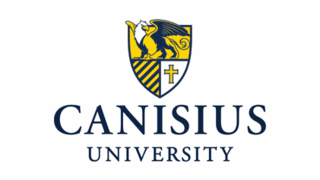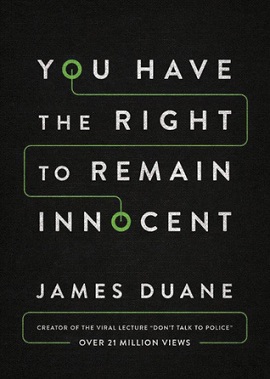Related Research Articles
Jury instructions, also known as charges or directions, are a set of legal guidelines given by a judge to a jury in a court of law. They are an important procedural step in a trial by jury, and as such are a cornerstone of criminal process in many common law countries.

In the United States, the Miranda warning is a type of notification customarily given by police to criminal suspects in police custody advising them of their right to silence and, in effect, protection from self-incrimination; that is, their right to refuse to answer questions or provide information to law enforcement or other officials. Named for the U.S. Supreme Court's 1966 decision Miranda v. Arizona, these rights are often referred to as Miranda rights. The purpose of such notification is to preserve the admissibility of their statements made during custodial interrogation in later criminal proceedings. The idea came from law professor Yale Kamisar, who subsequently was dubbed "the father of Miranda."
Jury nullification (US/UK), jury equity (UK), or a perverse verdict (UK) occurs when the jury in a criminal trial gives a not guilty verdict regardless of whether they believe a defendant has broken the law. The jury's reasons may include the belief that the law itself is unjust, that the prosecutor has misapplied the law in the defendant's case, that the punishment for breaking the law is too harsh, or general frustrations with the criminal justice system. Some juries have also refused to convict due to their own prejudices in favor of the defendant. Such verdicts are possible because a jury has an absolute right to return any verdict it chooses.
LexisNexis Risk Solutions is a global data and analytics company that provides data and technology services, analytics, predictive insights and fraud prevention for a wide range of industries. It is headquartered in Alpharetta, Georgia, and has offices throughout the U.S. and in:
Free speech zones are areas set aside in public places for the purpose of political protesting. The First Amendment to the United States Constitution states that "Congress shall make no law ... abridging ... the right of the people peaceably to assemble, and to petition the Government for a redress of grievances." The existence of free speech zones is based on U.S. court decisions stipulating that the government may reasonably regulate the time, place, and manner – but not content – of expression.

Canisius University is a private Jesuit university in Buffalo, New York. It was founded in 1870 by Jesuits from Germany and is named after St. Peter Canisius. Canisius offers more than 100 undergraduate majors and minors, and around 34 master's and certificate programs.
LexisNexis is a part of the RELX corporation that sells data analytics products and various databases that are accessed through online portals, including portals for computer-assisted legal research (CALR), newspaper search, and consumer information. During the 1970s, LexisNexis began to make legal and journalistic documents more accessible electronically. As of 2006, the company had the world's largest electronic database for legal and public-records–related information.
Not proven is a verdict available to a court of law in Scotland. Under Scots law, a criminal trial may end in one of three verdicts, one of conviction ("guilty") and two of acquittal.
Martindale-Hubbell is an information services company to the legal profession that was founded in 1868. The company publishes the Martindale-Hubbell Law Directory, which provides background information on lawyers and law firms in the United States and other countries. It also published the Martindale Hubbell Law Digest, a summary of laws around the world. Martindale-Hubbell is owned by consumer website company Internet Brands.
Alternative pleading is the legal term in the law of the United States for a form of pleading that permits a party in a court action to argue multiple possibilities that may be mutually exclusive by making use of legal fiction.
Eric Conveys an Emotion is a humor website in which the site's owner Eric Wu has taken requests for emotions, and then posts photos of himself acting out the emotions.

Jeralyn Elise Merritt is an American criminal defense attorney in private practice in Denver, Colorado, since 1974. She served as one of the trial lawyers for Timothy McVeigh in the Oklahoma City bombing case in 1996 and 1997. In 2002 Merritt founded and is the principal author of the blog TalkLeft: The Politics of Crime. She also serves as a legal commentator for news media programs and as an internet journalist.
In the United States, jury nullification occurs when a jury in a criminal case reaches a verdict contrary to the weight of evidence, sometimes because of a disagreement with the relevant law. It has its origins in colonial America under British law. The American jury draws its power of nullification from its right to render a general verdict in criminal trials, the inability of criminal courts to direct a verdict no matter how strong the evidence, the Fifth Amendment's Double Jeopardy Clause, which prohibits the appeal of an acquittal, and the fact that jurors cannot be punished for the verdict they return.
Daniel D. Blinka is a practicing trial lawyer and law professor at Marquette University Law School in Milwaukee, Wisconsin. As a scholar, Blinka focuses primarily on evidence law, criminal procedure, and American history. He teaches evidence, trial advocacy, criminal law, constitutional criminal procedure, ethics, and American history. Blinka holds a Ph.D. in American history and a JD from the University of Wisconsin–Madison, where he has also taught history courses.
To become a full member of the Mafia or Cosa Nostra – to become a "man of honor" or a "made man" – an aspiring member must take part in an initiation ritual or initiation ceremony. The ceremony involves significant ritual, oaths, blood, and an agreement is made to follow the rules of the Mafia as presented to the inductee. The first known account of the ceremony dates back to 1877 in Sicily.
A juror's oath is used to swear in jurors at the beginning of jury selection or trial.
The law of Illinois consists of several levels, including constitutional, statutory, and regulatory law, as well as case law and local law. The Illinois Compiled Statutes (ILCS) form the general statutory law.

The nothing to hide argument states that individuals have no reason to fear or oppose surveillance programs, unless they are afraid it will uncover their own illicit activities. An individual using this argument may claim that an average person should not worry about government surveillance, as they would have "nothing to hide".

Gillian L. L. Lester is the 15th Dean of Columbia Law School. She joined Columbia Law School on January 1, 2015, as Dean and Lucy G. Moses Professor of Law. Previously, Lester was acting dean of the University of California, Berkeley, School of Law where she had been a professor since 2006. Before that, she was a full professor at the School of Law of the University of California, Los Angeles.

You Have the Right to Remain Innocent is a 2016 non-fiction book by James Duane, a legal professor, published by Little A Books. It explains his belief why under almost all circumstances citizens should not talk to the police. He emphasizes that police officers tell their own children to never speak with the police.
References
- 1 2 "Regent University School of Law". Martindale . Archived from the original on March 5, 2017. Retrieved March 5, 2017.
JAMES JOSEPH DUANE, (Professor), born Buffalo, New York, July 30, 1959; admitted to bar, 1985, New York.
- ↑ "James Duane". Amazon .
He was born near Buffalo, New York, and is a descendant of Judge James Duane of New York, the first judge appointed to the newly-created federal judiciary by President George Washington in 1789.
- ↑ "James J. Duane, J.D." School of Law, Regent University. Retrieved December 8, 2019.
- "James Duane". Regent University School of Law. - ↑ Duane, James; George Bruch. Don't Talk to the Police. Regent University School of Law. Retrieved April 1, 2022.
- ↑ Duane, James (March 25, 2009). "Professor speaks to Federalist Society on Genius of the Fifth Amendment". Campbell University. Archived from the original on July 5, 2010. Retrieved August 10, 2010.
- ↑ "Watts v. Indiana, 338 U.S. 49 (1949)".
- ↑ Moore, James (June 26, 2021). "Bosch: Will the Way the Police Are Portrayed on Screen Have to Change?". The Independent . p. 52.
- ↑ "You Have the Right to Remain Innocent" (James Duane). YouTube. Event occurs at 8:28. Archived from the original on December 21, 2021. Retrieved September 7, 2021.
- ↑ Schneier, Bruce. "Why you should never talk to Police". Schneier on Security. Retrieved June 19, 2013.
- ↑ Duane, James Joseph (1999–2000). "Bizarre Drafting Errors in the Virginia Statute on Privileged Marital Communications, The". Regent U. L. Rev. 12 (91).
- ↑ Duane, James Joseph (1996–1997). "Trouble with United States v. Tellier: The Dangers of Hunting for Bootstrappers and other Mythical Monsters, The". Am. J. Crim. L. 24 (215).
- ↑ "Who We Are". Fully Informed Jury Association. Archived from the original on April 15, 2010. Retrieved October 27, 2015.
- ↑ Duane, James (1996). "Jury Nullification: The Top Secret Constitutional Right" (PDF). Litigation. 22 (4): 6–60. Archived from the original (PDF) on April 4, 2019.